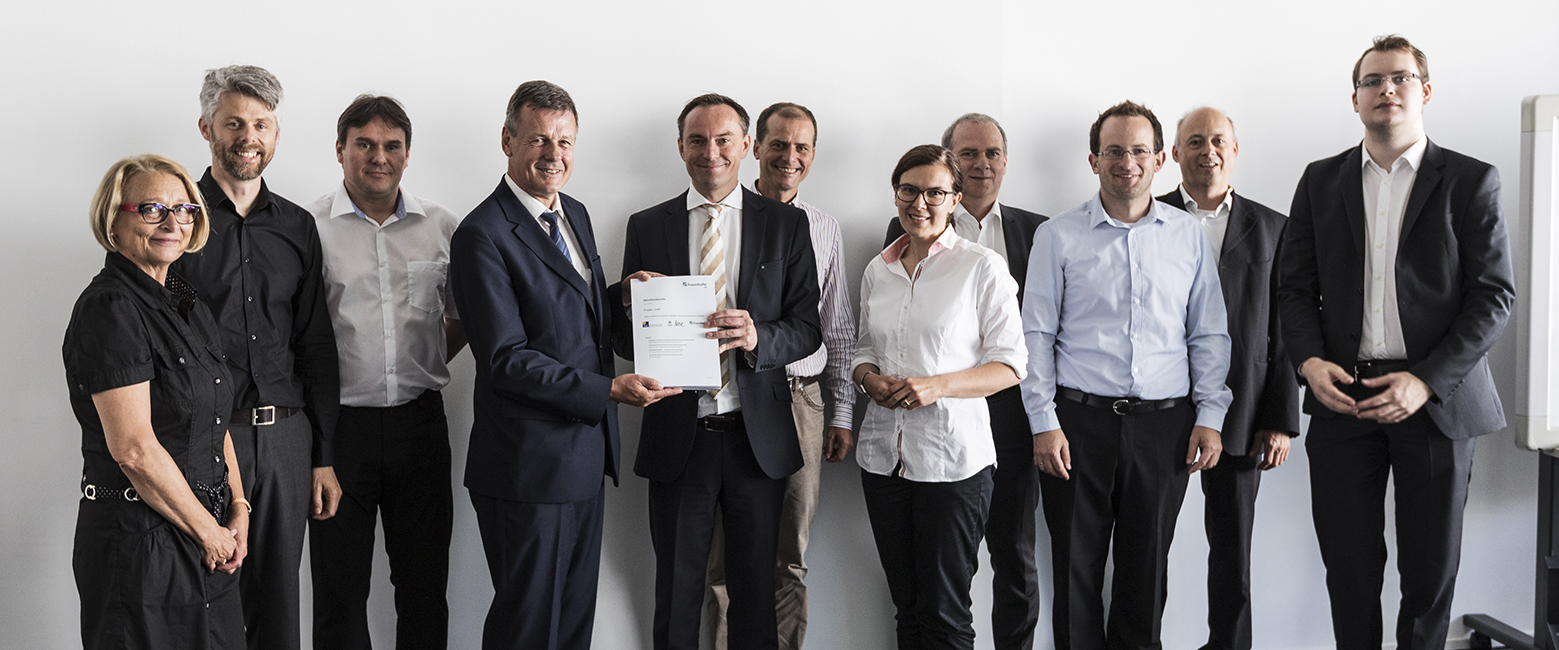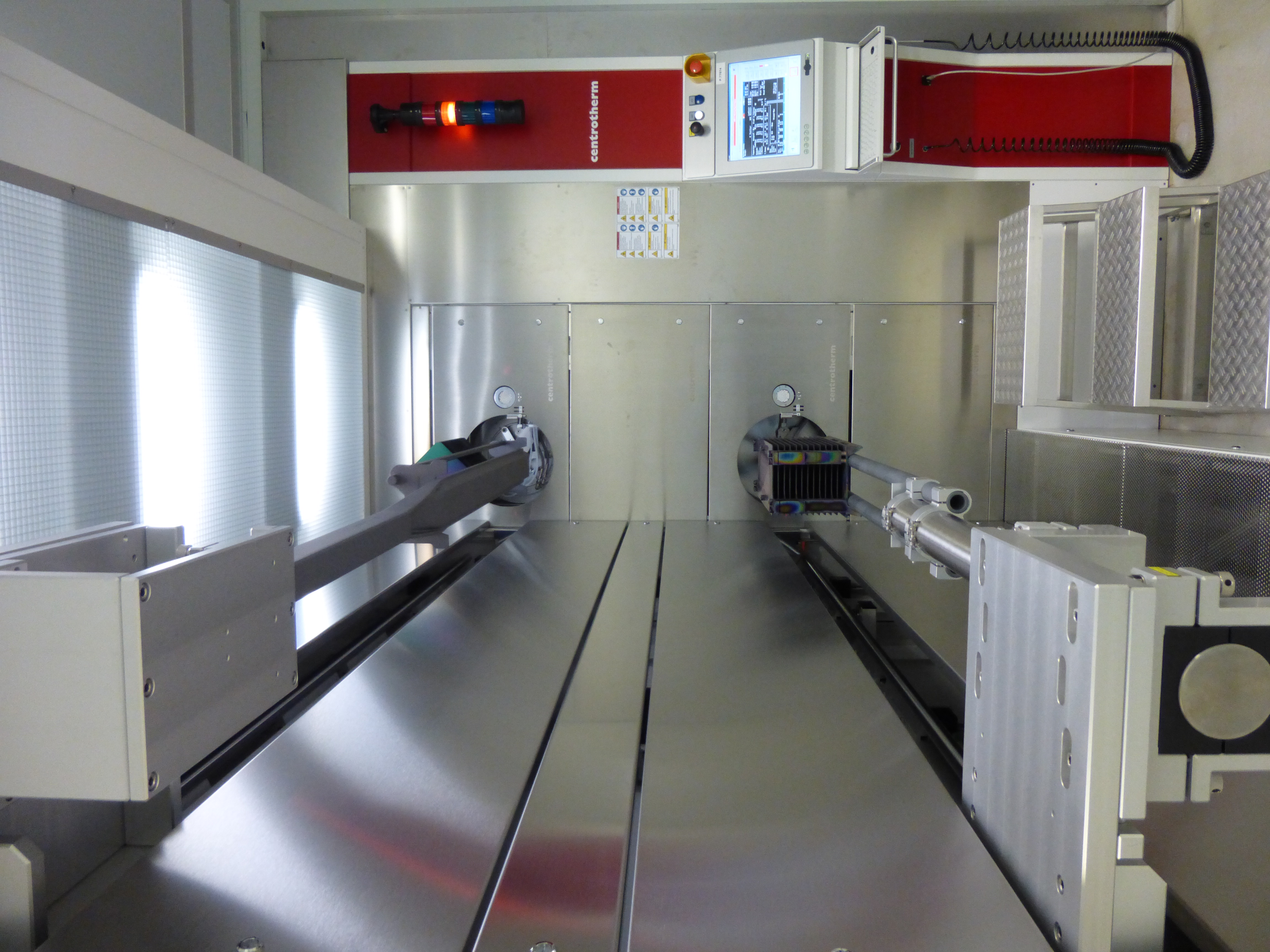Virtual technology center for efficient solar cells
Linking up systems to a virtual network in order to make solar cell production in Baden Württemberg more efficient – this was the aim of the “InES” research project. With a cloud infrastructure developed by Fraunhofer IPA and both mobile and browser-based applications, the consortium is now able to share the use of machines at different sites. Remote monitoring of processes and automated test data transfers were also implemented.


The project partners, comprising Fraunhofer IPA and Fraunhofer ISE, the Institute for Photovoltaics of the University of Stuttgart (ipv) and the International Solar Energy Research Center (ISC), founded the “Solar Cells Technology Center 4.0” to pursue these plans. Fraunhofer IPA was given the task of establishing an IT infrastructure. To do this, the experts relied on the Virtual Fort Knox (VFK) platform and linked all of the technology center’s systems to the cloud via a specified IT interface. Data from experiments is now automatically sent to VFK and can be processed directly.
Planning and conducting experiments via apps
The key element of the technology center is a mobile app developed by Fraunhofer IPA, which enables users to access individual machines and systems. Fraunhofer IPA Project Leader Martin Kasperczyk: »The app shows machine data and postings. This means that experiments can be planned and evaluated better.« Furthermore, the technology center sustainably improves solar cell production. With this connection to the cloud, manufacturers are now able to analyze previous machine data and identify weaknesses. The expert adds: »This means that experiments can be carried out more efficiently and systems and parameters can be sustainably optimized.«
Monitoring critical processes from your desk
In the technology center, solutions are also being implemented for tasks specific to the project partners. For example, the team of experts implemented the automated transfer of experiment data to the IT system for the ipv. Results and parameters were input manually into the IT system. With the cloud connection, documentation and transfer now occurs automatically. Employees can work more efficiently and input errors are avoided. The consortium implemented remote monitoring of cells in the diffusion tube for Fraunhofer ISE. This process is particularly critical in cell production and must be checked continuously, meaning that employees must start the process and monitor it in person in the cleanroom. As Kasperczyk knows, this is time-consuming as the employee must walk far and always change into the appropriate clothing. However, with a link to the cloud, it is possible for an employee to log into a system directly from their desk and check the values.
Plans to turn technology center into a self-learning factory
The Solar Cell Technology Center 4.0 will remain after the project has ended. Kasperczyk explains that the results can be expanded to other sectors and could be implemented in other laboratories and small-scale productions to increase efficiency. For their next step, the partners plan to build a self-learning factory on the basis of the technology center. This project, which is called “TechFab”, is already in the application phase. The “InES” (Industry 4.0 used for future solar development and production) project received funding of EUR 2.4 million from the Ministry of Economic Affairs, Labor and Housing. The partners submitted their final report in July 2017.
Profile
Title: “InES” (Industry 4.0 used for future solar cell development and production)
Partners: Fraunhofer-Institute for Manufacturing Engineering and Automation IPA and for solar energy systems, the Institute for Photovoltaics of the University of Stuttgart and the International Solar Energy Research Center (ISC)
Funding body Ministry of Economic Affairs, Labor and Housing, Baden-Württemberg
Duration: August, 25 2015 to April 30, 2017
Funding amount: approximately EUR 2.4 million